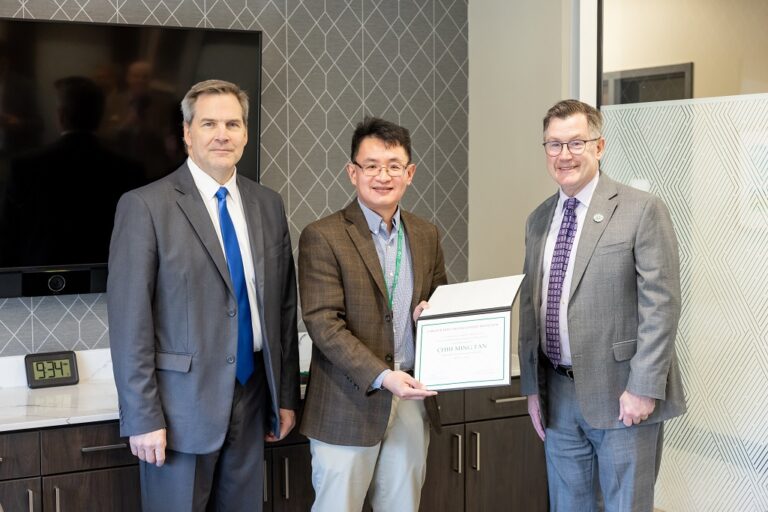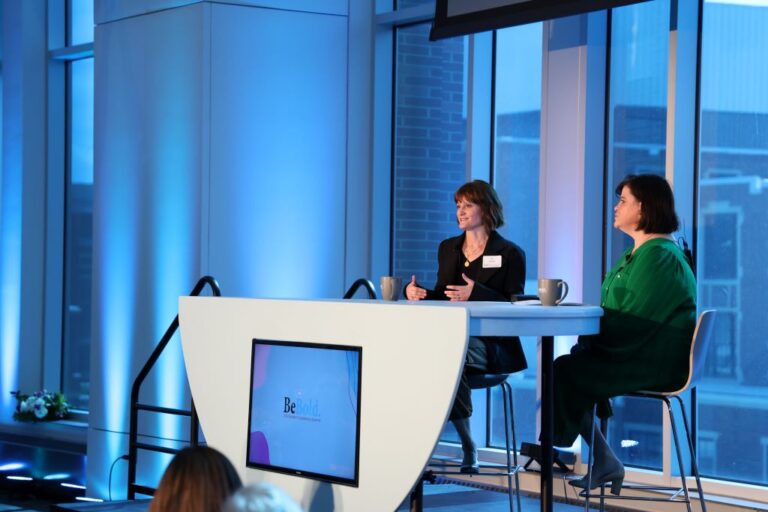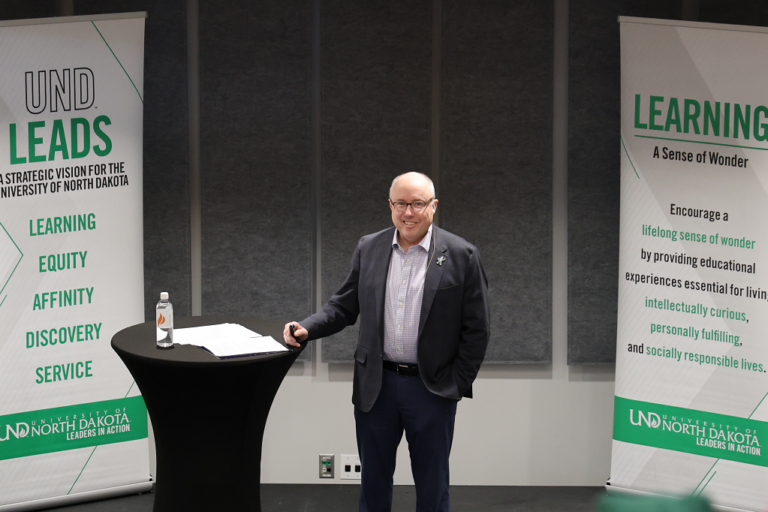Pandemic practice
In an eerie foreshadowing of current events, UND students in November simulated an unfolding global pandemic

As a flu virus rages worldwide, policy makers from four nations race to contain the virus, stop the pandemic, and save lives.
Should they quarantine? Close borders? Restrict travel? Distribute masks and hand sanitizer? Focus on novel vaccine development?
Each decision has implications. How many lives can be saved? Is there enough money to develop a vaccine? How will decisions affect each nation?
All of those questions were asked – and answered – not last week, but last semester, as UND students simulated what turned out to be a prescient scenario of world events. Uncannily similar to the current coronavirus outbreak, this flu pandemic simulation was held during the Fall 2019 term for UND political science and public administration students.
UND was the first university in the nation to employ this simulation for classroom use, said Dana Harsell, associate professor of political science & public administration and an expert in policy development, who last week gave a presentation about the experience at a conference in New Mexico.

National competitions
The simulation was developed by NASPAA, the Network of Schools of Public Policy, Affairs and Administration, in partnership with the Batten School at the University of Virginia. NASPAA accredits UND’s Master of Public Administration program and also sponsors global simulation competitions for students.
UND MPA students have taken part in those national competitions every year, Harsell said, adding that in 2018, a pandemic simulation was held at the University of Washington, where he served as a judge.
Other simulations have included sessions on climate change, refugees, food security and more. UND Master of Public Administration student Nick Jensen took home the top prize in the world food security simulation, and placed internationally in 2017.
After the contest is complete, NASPAA makes the simulations available free for classroom use, and Harsell took advantage of the offer.

Policy practice
Harsell organized the students into teams, each representing one of four imaginary nations with different economies. Each student had a role as a government official, such as prime minister, minister of health, communications minister, and others.
“Other disciplines, such as nursing, use simulations,” said Harsell. “This helps students analyze policies and their implications. There are options and tradeoffs. It gets students thinking. If you distribute vaccines, what are the logistics and how much will it cost? If you close schools or borders, how does that impact the population? How effective are masks and hand sanitizer? How are taxes best spent to save lives?”
The simulation is based on real countries and past responses, Harsell said. A dashboard allows the “nations” to monitor vaccination numbers, infection rates, and fatalities in response to their decisions.
Each country has its own character.
“Some nations are wealthier, some depend on tourism, some depend on trade, some are self-supporting,” Harsell said. “Each policy decision affects other nations. If one nation closes borders and another is dependent on trade, how will that affect the revenue available to pay for vaccine development? What are the ethical implications? There are also cultural aspects. What works in one country may not work in another.”
“Countries have finite resources,” he said. “A nation could have a good policy but a bad outcome based on what other countries do. And what works in one country may not work in another. Everything costs money, and students have to figure out how much to tax residents and how to maintain the public trust. It’s a nice hands-on experience for students.”
A high-impact practice
Harsell said that students were extremely engaged, and made quantum leaps in policy as they repeated the scenarios.
“I have them do it at least twice, once as a member of a wealthier nation and once as part of a poorer nation,” Harsell said. “It’s eye-opening for them. I even have comments in my student evaluations about it.”
“It was a lot of fun,” said Jake Osweiler, a junior in public administration from Victoria, Minn., who took part in the simulation last semester. “It put what we learned in class into action. In political science, we usually talk theory. Here, we saw the results of our actions.”

Osweiler said he has been thinking about the simulation as the coronavirus outbreak continues.
“It’s interesting to see decisions made by the U.S., China, Australia, and the Philippines,” Osweiler said, adding that they are very similar to the simulation scenarios.
Harsell said that last semester’s students continue to send him emails and links to articles about the pandemic simulation and the corona outbreak, and plans to run the simulation in future classes. He is especially interested to see what policy options they choose in light of the corona outbreak.
“This kind of teaching is a high impact practice for students,” Harsell said. “These kinds of things not only present real-world, practical opportunities to engage students, but also tie into the UND Strategic Plan and our goals to provide students with high impact practices. That leads to better learning outcomes and higher retention.”
“Dana is an awesome professor,” Osweiler said. “He brings a lot of experience. He has stories about watching someone from NASA being sworn into a position. The experience that our political science professors have and can bring back to UND is pretty awesome.”


